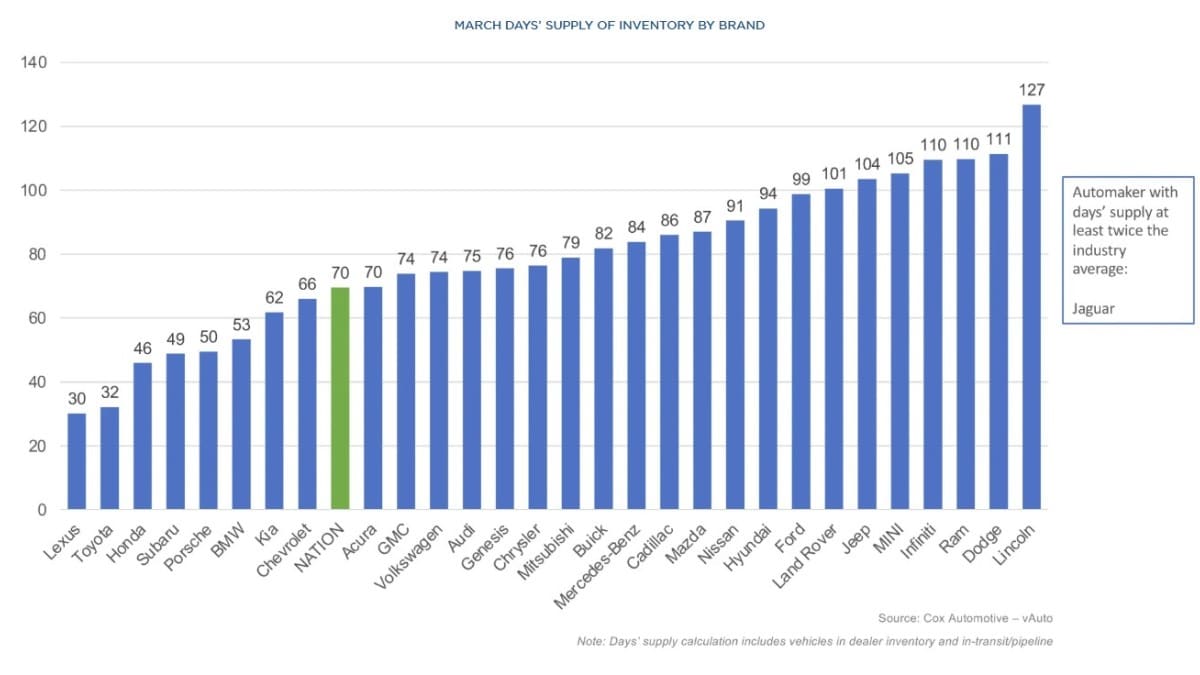Mitsubishi joined Audi and Land Rover on Friday in holding new vehicles at ports in response to new automobile tariffs. A brand new report says unprocessed vehicles are starting to replenish storage heaps at U.S. ports, and transportation employees say the backlog of vehicles may snarl delivery logistics if nothing adjustments.
They Don’t Pay a Tariff (But) on a Automotive Held in Port
Why would an automaker refuse to select up its personal merchandise from ports? As a result of they don’t pay a tariff till they course of the automobile out of the port facility.
The Monetary Instances explains, “Charges for holding vehicles in port are excessive, and carmakers are additionally in search of to maneuver automobiles into U.S. bonded warehouses, the place producers can briefly retailer merchandise with out being charged tariffs.”
Most Automakers Have Sufficient Stock for Now
Balancing provide and demand is essential to automaker success. Most carmakers historically attempt to hold about two months’ price of vehicles on gross sales heaps at any given time, with one other two weeks in transit. Extra could be a waste of cash (significantly for sellers, who’re normally making funds on the vehicles on their heaps). Fewer may imply lacking out on gross sales as a result of they lack the mix of colours and incorporates a purchaser needs.
The typical automaker entered this month with a 70-day provide — not removed from the goal. That’s shrinking as gross sales velocity up. Many People have flocked to sellers in latest weeks, seeking to purchase the final vehicles imported at pre-tariff costs.
Nonetheless, Land Rover and Mitsubishi are comfortably above that concentrate on. Audi is sort of at it.


Mitsubishi spokesperson Jeremy Barnes advised business publication Automotive Information, “We’ve got ample inventory on the bottom at sellers for the second to not impression buyer alternative.”
Transfer May Repay if Tariffs Are Lifted
If the tariffs last more than stock, automakers must pay larger post-tariff costs to import the vehicles. However President Trump has already wavered on some tariffs, enacting a 90-day pause on non-car duties.
Firms could be playing that Trump will waive the automobile tariffs earlier than they run out of stock.
Port authorities, nonetheless, are prone to begin objecting quickly. “We’re getting nearer to capability at some ports,” one nameless logistics govt advised the Monetary Instances. One other “warned that the piling of imported automobiles at American ports may get ‘fairly ugly’ with ports set to ‘replenish quick’ in a number of weeks,” the FT stories.
Port employees are already bracing for chaos as deliberate port charges within the tens of millions of {dollars} per ship may quickly focus shipments into only a handful of already-busy ports, inflicting provide chain bottlenecks that might rival these of the early COVID-19 pandemic.